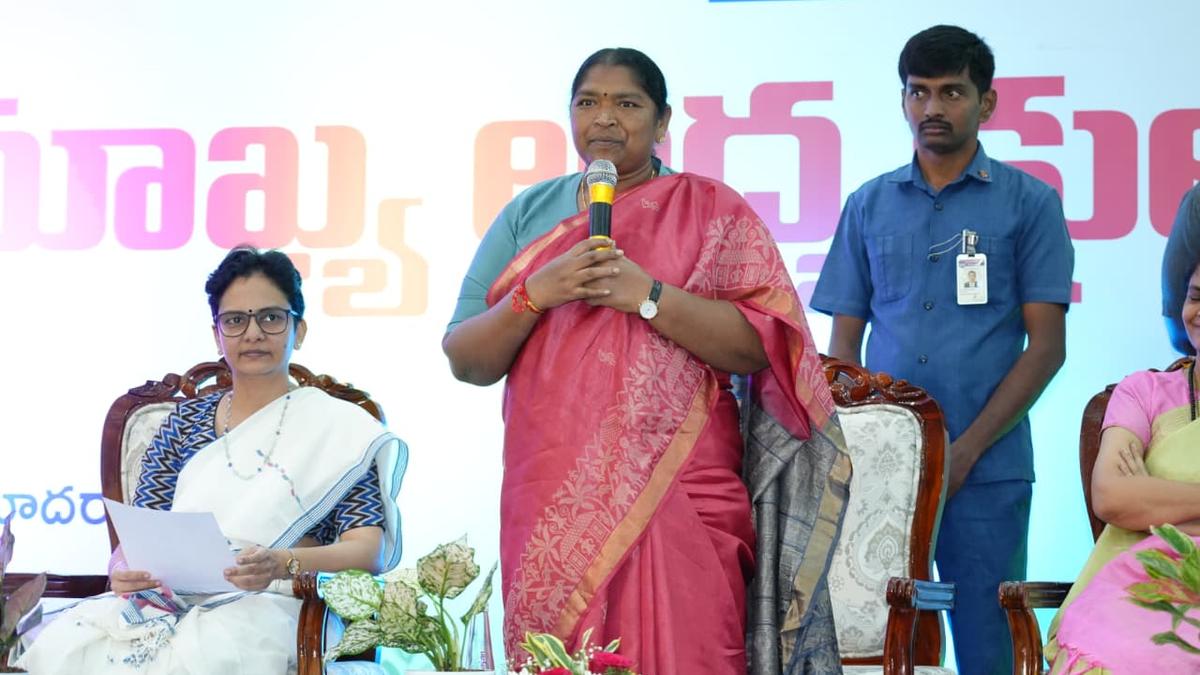ARTICLE AD BOX
Last Updated:November 15, 2025, 17:57 IST
Nathuram Godse and Narayan Apte were hanged before sunrise on November 15 at Ambala Central Jail. Godse appeared inconsolable, while Apte remained composed

Nathuram Godse admitted his crime in court. (News18 Hindi)
On the morning of November 15, 1949, an unusual atmosphere enveloped Ambala Jail. Nathuram Godse and Narayan Apte, convicted for Mahatma Gandhi’s assassination, were executed early that day. Following the hanging, officials discreetly performed their last rites inside the jail. Despite repeated pleas from their families, the bodies were not released. The ashes were then covertly immersed in the Ghaggar river.
Godse believed Gandhi’s non-violent policies and efforts to promote Hindu-Muslim unity were detrimental to the nation, especially during Partition, feeling Gandhi was jeopardising Hindu interests. Historian Hama Gebe noted that Godse saw Gandhi’s policy of religious equality as a ‘betrayal’. Godse was a staunch critic of Gandhi’s defence of Muslim rights and his efforts for bilateral relations. Over time, more individuals have come to sympathise with Godse’s views. Some groups now portray Godse as a role model and call him a nationalist.
Gandhi’s Assassination And Godse’s Trial
On January 30, 1948, Gandhi’s assassination marked a controversial and tragic chapter in Indian history. Godse shot Gandhi three times during a prayer meeting, without harming anyone else. The trial against Godse began soon after, on January 22, 1948, at Delhi’s Red Fort.
Death Sentence Awarded
The government prosecutor successfully argued that Gandhi’s murder was a premeditated conspiracy. On October 10, 1949, Judge Atma Charan sentenced Godse and Apte to death, while others involved were also found guilty. During the appeal, Godse delivered an extensive speech criticising Gandhi’s policies and contended they led to India’s partition.
Godse And Apte’s Final Moments
Nathuram Godse and Narayan Apte were hanged at Ambala Central Jail before sunrise on November 15. Eyewitnesses recall that when Godse’s name was called, he appeared somewhat inconsolable and spoke weakly, while Apte seemed far more composed. As they walked toward the gallows, Godse shouted ‘Akhand Bharat,’ to which Apte responded with a stronger and more resonant ‘Amar Rahe.’ According to Robert Paine’s ‘The Life and Death of Mahatma Gandhi’, Apte had conducted himself as a model prisoner and even authored a book on Indian thought. Despite the chants, both men remained remarkably composed in their final moments.
Execution And Secret Funeral
Both were hanged simultaneously; Apte died instantly, but it took Godse a few moments. A member of the verification team described the scene as distressing and said it haunted him for days.
Under special instructions from Delhi, the district magistrate’s staff performed the last rites within hours. They collected the ashes, placed them in an armoured vehicle, and transported them to the Ghaggar river for immersion, accompanied by police for security. The immersion was carried out with utmost secrecy, ensuring no witnesses. The vehicle first drove to the river, moved ahead to mislead any observers, then returned to immerse the ashes in a fast-flowing, unidentified part of the river, making retrieval impossible. Even for the team members, returning to the spot would be challenging. This secrecy highlighted the intent to keep everything confidential.
Role Of The District Magistrate’s Staff Post-Execution
At that time, when someone was hanged, the district magistrate and staff had to be present to officially confirm the death. If the body was not handed over to the family or went unclaimed, the staff was responsible for the last rites. In the case of Godse and Apte, the staff managed the cremation and immersion of ashes. They also recorded the final wishes of those sentenced to death.
Bodies Not Released To Families By Government
The Indian government decided not to release the bodies to the families to prevent Godse and Apte from being glorified or turned into political symbols. The country was still dealing with the aftermath of Partition, and the government wanted to avoid their bodies being used by radical or nationalist groups, which could cause social or political instability. Hence, the funeral was kept secret and strictly controlled by jail officials, excluding family members and adhering to government orders.
Gandhi Murder Case Verdict Date
On February 10, 1949, the special court delivered its verdict in Gandhi’s assassination case. Of the nine accused, Vinayak Damodar Savarkar was acquitted, while the other eight were convicted for murder, conspiracy, and violence. Godse and Apte were sentenced to death, and six others, including Godse’s brother Gopal Godse, received life imprisonment.
Gopal Godse Wrote A Book Post-Sentence
Gopal Godse, Viyabio Karkare, Madnisi Puhi, Shankar Kistaya, and Dattatreya Parchure were sentenced to life imprisonment. After serving their sentences, they were released. Nathuram Godse admitted his crime in court but argued his actions were motivated by Gandhi’s policies, which he believed weakened India. Gopal Godse completed his sentence in 1966 and published a book detailing the events and reasons behind Gandhi’s assassination.
Was Narayan Apte A British Intelligence Agent?
In 1966, when the government reopened the Gandhi murder case, a commission led by Justice J.L. Kapur was formed. The Kapur Commission expressed doubts about Narayan Apte’s identity, describing him as a former Indian Air Force employee. Based on this, the Abhinav Bharat Mumbai organisation asked Defence Minister Manohar Parrikar for information. Parrikar replied that records showed Apte was never in the Air Force. Later, Dr Pankaj Phadnis of Abhinav Bharat claimed Apte was a member of British intelligence agency Force 136 and that Apte fired the fourth shot at Gandhi, not Godse.
Apte Hailed From A Family Of Sanskrit Scholars
According to Wikipedia, Narayan Apte had a charming personality, graduated in science from Bombay University, and worked in teaching and other jobs. He belonged to a respected Brahmin family in Pune known for Sanskrit scholarship. In 1939, while working as a teacher in Ahmednagar, Apte joined the Hindu Mahasabha. Due to family responsibilities, he returned to his ancestral home in Pune to care for his joint family. His wife was also from an influential family, and their married life was reported to be happy. They had a son who often suffered from health issues.
First Published:
November 15, 2025, 17:57 IST
News india Hanged At Dawn, Cremated In Secret: Inside Nathuram Godse's Execution
Disclaimer: Comments reflect users’ views, not News18’s. Please keep discussions respectful and constructive. Abusive, defamatory, or illegal comments will be removed. News18 may disable any comment at its discretion. By posting, you agree to our Terms of Use and Privacy Policy.
Read More

 1 hour ago
6
1 hour ago
6








 English (US) ·
English (US) ·